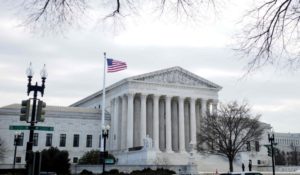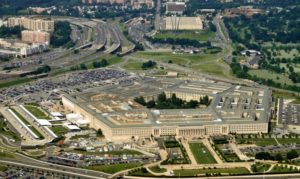Vaccine Mandates and Roads Not Taken
Another regulatory approach to mandate vaccines could have withstood judicial scrutiny.
Regulating the Defense Industry’s Revolving Door
GAO recommends the U.S. Department of Defense amend regulations restricting lobbying by former personnel.
Threatening Chevron Deference Threatens Government as a Whole
Scholar argues that overruling deference to agencies will constrain U.S. government action.
Ending the Virtual School-to-Prison Pipeline
Civil rights attorney examines legal issues presented by virtual school disciplinary policies.
The Biden-Harris Administration’s Racial Equity Efforts
Although much more work remains, the current Administration has made historic progress in advancing equity.
Unlocking the Potential Between Blockchain and Antitrust
The tech and legal communities should recognize the complementary nature of antitrust law and blockchain.
What It Means to Support a Waiver of COVID-19 Vaccine Patents
The Biden Administration should exert international and domestic pressure to waive COVID-19 vaccine patents.
Changing Federal Land Policy Can Encourage Carbon Capture Projects
Scholar argues for land management policy changes to encourage carbon capture projects on federal land.
Medicare and Chevron in the Supreme Court’s New Term
With two Medicare cases, the U.S. Supreme Court may change an important rule on deference to agency decisions.
Taking Hearing Aids Over the Counter
FDA proposes a new rule to permit the purchase of hearing aids without a prescription.
Empathy in an Automated State
Increased use of artificial intelligence in public administration calls for efforts to give government a human touch.












